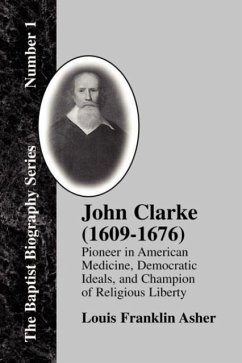Now nearly forgotten, John Ogden was one of our country's earliest patriots,a man who stood tall against the intrusion of foreign intervention in colonial affairs and who left a significant footprint in 17th century America. An accomplished stonemason, Ogden was born in Lancashire, England in 1609. He emigrated to the New World in 1641, arriving in Rippowam (now Stamford, Connecticut) to build a dam and grist mill for the community. In 1642 he was hired to build the first permanent stone church in Fort Amsterdam, then but a small dusty settlement at the foot of Manhattan Island. Leaving Stamford in 1644, Ogden spent the next twenty-one years on Long Island. Among his other accomplishments there, he established the first commercial whaling enterprise in America. In 1665 Odgen became one of the original patentees on the Elizabethtown Purchase, the first English settlement in the Colony of New Jersey. For the next nineteen years, until his death in 1682, he led the community through the difficult years of conflict between the settlers - who had purchased their land directly from the Native Americans - and the English proprietors, who attempted to usurp the settler's property and their government. On one occasion he risked almost everything he owned rather than accede to a foreign authority that he felt had no legal standing. This single act of civil disobedience should allow him to stand with the foremost patriots in our history. Ogden's service to his community included many stints as a magistrate, first at the town level, and later at the East New Jersey colony level. He was also chosen on many occasions to lead delegations to deal with the Native Americans, who trusted him completely. His years in New Jersey also saw Ogden develop and pursue many business interests. He built with his own hands a gristmill, a lumber mill, a tanyard and a brickyard. He also conducted a successful trading business, and established another whaling company. No accurate information has been previously published about John Ogden's earliest years in England. A one-hundred-year-old genealogical study on the Ogden family in America - which has served as the foundation for much of our information about the man - is inaccurate. Using both direct and inferential information, Mr. Harpster has recreated that early time, providing the first ever look at the ancestral home of the Ogdens and explaining how they came to emigrate to America. The author has also delved deeply into early colonial records to discuss the Ogden family's life and times in America during the mid- to late-1600s. The story is highlighted by many colorful incidents and descriptions, often told in the words of contemporary colonial Americans. John Ogden, The Pilgrim (1609-1682) - a Man of More than Ordinary Mark provides new history - and often rewrites existing history - about an important colonial American pioneer. It is an absorbing, insightful biography set in an exciting, but understudied, period of American history.
Hinweis: Dieser Artikel kann nur an eine deutsche Lieferadresse ausgeliefert werden.
Hinweis: Dieser Artikel kann nur an eine deutsche Lieferadresse ausgeliefert werden.








